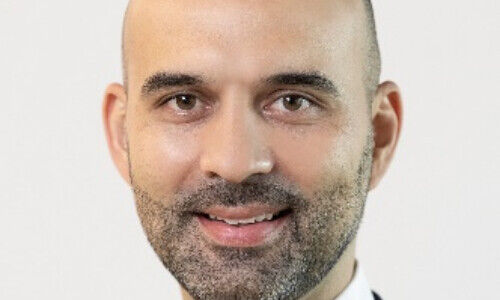UBS' Conrad Huber: NextGen Multi-Banking is «Here to Stay»
Banks across the industry are keen to capture market share from the next generation of clients who are undergoing a historic wealth transfer and are willing to experiment. This will inevitably lead to further multi-banking, a trend which UBS' Conrad Huber said he is actually encouraging.
According to UBS’ Global Wealth Report 2025, $74 trillion of wealth is expected to be transferred over the next 20 to 25 years from one generation to the next. Asia will account for a sizeable portion, led by mainland China, India and Japan.
This trend has seismic implications because younger clients are exhibiting significantly different behavioural tendencies compared to their predecessors when it comes to finance. There is a wide range of examples, including greater digital savviness and the preference to allocate capital with a purpose. In turn, banks are ramping up efforts to keep these clients and their wealth.
Organic Retention
According to UBS, it doesn’t directly incentivize bankers to retain next generation (nextgen) clients. However, it actively monitors changes in relationships and provides internal training, including to younger bankers as many nextgen clients may prefer to interface with a more relatable counterpart.
«Does the banker know the nextgen client? Do they gel? It is a top priority for us to ensure that every one of our clients is comfortable with their banker,» said Conrad Huber, head Indonesia & Japan international, non-resident India & India, global wealth management APAC, UBS, in a conversation with finews.asia.
«Oftentimes, we develop nextgen relationships organically simply from proactively opening accounts that receive dividends from a family business or hold a stake.»
Fintech Competition
On digital savviness, fintech firms are increasingly winning market share from nextgen clients through innovative solutions and user-friendly platforms. However, Huber believes that a purpose remains for traditional financial institutions like private banks.
«There is space for fintechs to succeed in finance. They may have a better credit card or a better app for user experience,» he explained.
«But private banking will always be a people’s business. You’re not going to talk to a robo-advisor about your family matters or wanting a specific child to make certain decisions. These are very personal issues that you will want to deal with face to face.»
Digital Assets
Within the realm of fintech, young investors are also deeply interested in digital assets, like cryptocurrencies, which is an area that traditional firms are lagging mainly due to regulatory reasons. At UBS, clients have access to crypto exchange-traded funds (ETF) and structured products referencing such ETFs but it does not provide advice on the digital asset class.
«We have a working group that is monitoring the space closely and staying abreast with the latest developments. If you ask me again in two or three years, our answer could be different,» Huber added.
Ample Content
Not unlike its industry rivals, UBS features various relevant content targeting nextgen clients. But its scale allows it to run a larger variety of programs designed specifically for subsets within the segment.
For example, its Leadership Excellence and Development Series (LEADS) focuses on participants aged 18 to 25, while its Global Rising Investors (GRI) program is skewed towards older participants aged 20 to 35. It also has a partnership with the Young Investors Organization (YIO) which has nearly 2,000 future leaders with ages ranging from the 20s all the way to the 50s.
«Through our merger, we inherited all of Credit Suisse’s next generation programs. We looked at all of them and decided which ones were the best to keep. We now have access to more content, more nextgen networks and more specialists,» Huber said.
Multi-Banking is Here to Stay
Given the ongoing efforts of other competitors, combined with external factors such as geopolitical risks, the wealth management industry faces pressure from nextgen clients who are increasingly seeking a greater mix of investments, booking centers and, of course, banks. Huber not only admits that «the multi-banking trend is here to stay» but encourages it.
«In fact, we advise our clients to have more than one banking relationship for diversification. Every bank, including smaller ones, has its own strengths and niches,» he explained.
«For us, our key differentiators for our clients’ portfolios are our breadth and depth of our investment offerings, our global connectivity and our one-bank approach to clients. Size does matter. For example, we are one of the largest LP’s worldwide and this allows us to come up with a lot of exclusive investment opportunities for our clients only.»



























